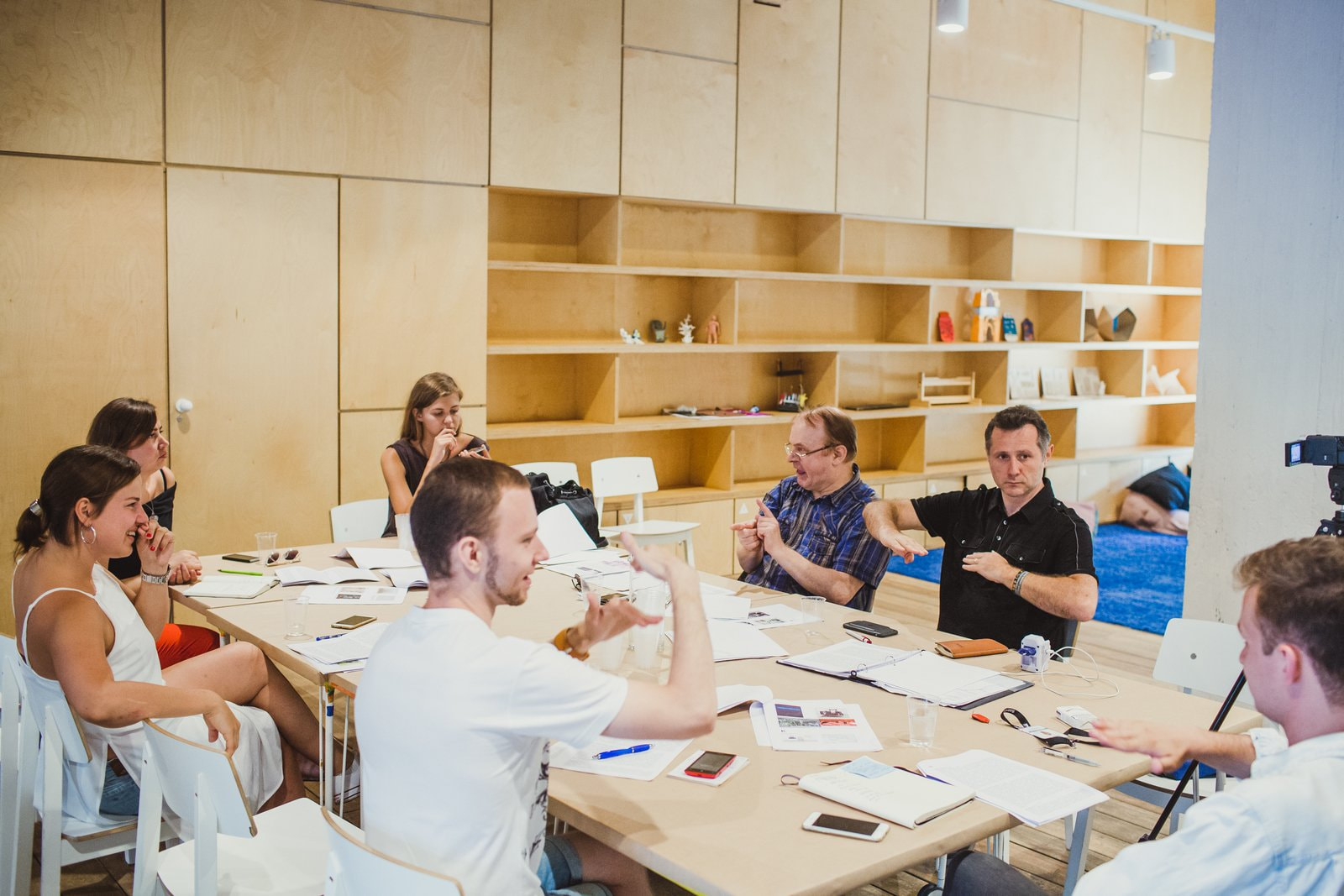Thanks to the work of the Inclusive Department team at Garage, Russian Sign Language now has thirty-six new terms from the field of contemporary art.
As part of the training session Museum of Senses: the Deaf, a contemporary art dictionary will be presented in a video-course format, accessible to all deaf and hard of hearing visitors. Garage’s experience of working in this field demonstrated that typical literature on art is not accessible to all deaf visitors, and many contemporary art terms, such as, ‘abstraction,’ ‘pop-art,’ ‘concept art,’ etc., do not have equivalents in Russian Sign Language.
Russian Sign Language is a specific linguistic system with particular grammar and vocabulary rules that has developed over centuries. During the Soviet period, linguists ignored sign language as it was unofficially banned in schools for deaf and hard of hearing students. At the end of the twentieth century, growing interest in sign language, as well as its acknowledgement both by the government and the academic milieu, was caused by a number of factors—general changes in society towards people with disabilities, scientific acceptance of the idea that cognitive processes take place both in oral and sign languages, and the development of the bilingual method of teaching the deaf in Europe and the USA.
The video-course on the key terms of twentieth-century art in Russian Sign Language will give the deaf and hard of hearing an opportunity to gain new knowledge about art and broaden their cultural experience—with the help of the Internet. The dictionary will be available for all on Garage’s YouTube channel—garagemca.
In order to create the dictionary, Garage collaborated with a panel of experts for whom Russian Sign Language is their mother-tongue—professional interpreter for the deaf Arkadiy Belozovskiy, artist Aleksander Martyanov, actress Antonina Pichugina, journalist Aleksandr Sidelnikov, and TV-presenter and photographer Tatyana Birs.
In the year since their formation, the team from the first Inclusive Programs Department in Russia has designed educational programs for people with disabilities as a support to eleven exhibitions. They give tours on a regular basis for deaf and hard of hearing, vision-impaired, and developmentally disabled visitors and have adapted Irina Kulik’s lecture cycle Dissymmetrical Similarities for deaf and vision-impaired visitors. Co-Thinkers—part the summer exhibition season at Garage—demonstrated a brand new approach to the concept of accessibility. A group of four Museum visitors with various disabilities collaborated with the team from Garage in the process of creating the exhibition. The group influenced the choice of tone for the show and the formation of the interactive solutions that broadened the usual range of the viewers’ experience. Co-Thinkers featured sculptures, paintings, and installations by outstanding artists of the twentieth and twenty-first centuries such as Antony Gormley, Maurizio Cattelan, Jenny Saville, Robert Rauschenberg, James Turrell, among others.
